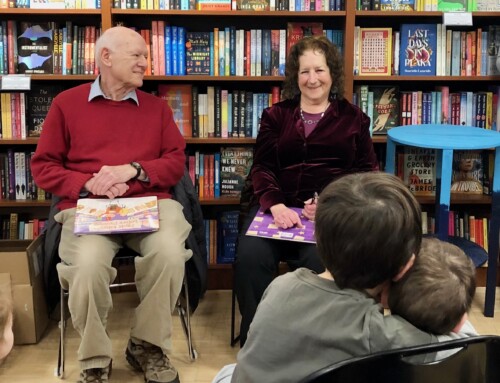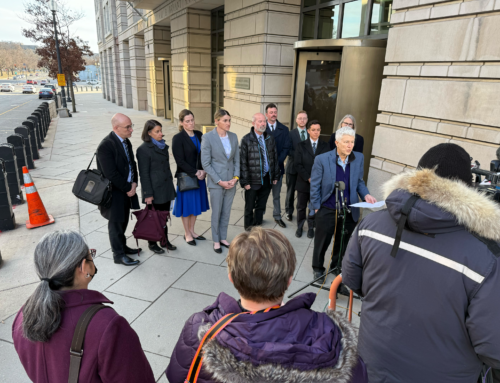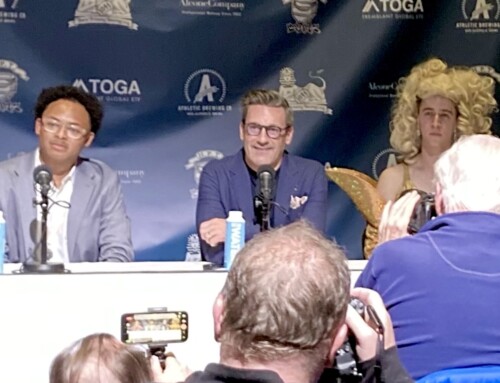International Women’s Day is a global day celebrating the social, economic, cultural and political achievements of women.
By Nina Livingstone
It was “Gloria: A Life” at the American Repertory Theater last month that let me revisit the women’s movement through the eyes of Gloria Steinem. I watched history unfold onstage, reminding me of how far we have come.
Then I later returned to the Democratic debate stage on TV and saw how far we still have to go.
The women I reached out to for this article seemed equally concerned with the political plague sweeping the nation (not to exclude the coronavirus). I felt as if the collective sentiment on this topic was perhaps too daunting to tackle.
Here’s what a few of my friends had to say about International Women’s Day, which falls on March 8.
“I never knew how important International Women’s Day is to the world’s women until 1985, when I went to the second United Nations International Women’s Conference in Nairobi. Women from all over the world filled an enormous festival ground. They spoke of issues that I, a gently raised American, had never imagined. Clitoridectomy? I came home rejoicing in our shared goals, swathed in yards of African cloth printed with joyous patterns featuring International Women’s Year and the invocation ‘Sisterhood is powerful.’ We owe those decades of conferences, including national meetings within the United States, to Congresswoman Bella Abzug. If she were still with us, she would not have expected pink pussy hats to do the trick. They certainly seem to have gone out of fashion.
“My own granddaughters, in their 20s, are educated and woke, but they, like me at their age, do not truly know their history or their heroines. They can now keep their wages, insist on partnered marriage, use birth control, etc. But they do not realize that for a true gender-equal society, they would be better off in, for example, Iceland.
“The goals of International Women’s Day are still essential, and frighteningly elusive right now. Achieving them requires applying two proven slogans: ‘The personal is political’ and ‘Sisterhood is powerful.’”
Jane O’Reilly, who graduated from Radcliffe College in 1958, worked with Gloria Steinem as one of the cofounders of Ms. Magazine, writing the magazine’s first cover story, “The Housewife’s Moment of Truth.” Her article spoke for feminist strength and the opposition against the repression of wives in society and the home. She currently lives in Boston.
~
“Recently I was on an Amtrak train from Providence to New York City, and at times I could not block out the conversations around me. I heard two women who had just met on the train. They were both in academics and were having an animated conversation about their work. I also heard pieces of phone conversations from two different women. It was clear from their ends of the conversations that they were either executives or had jobs with considerable responsibility. I was struck by the fact that this has become a reality in my lifetime. Maybe it was like this four years ago, but it certainly wasn’t 20 years ago. More and more women are running for and winning elections for public office. Last week Harvey Weinstein was found guilty of criminal sexual assault in the first degree and rape in the third degree.”
Dr. Judith Kleinerman, Boston
~
“Sometimes you have to swim as fast as you can and as long as you can, in order to save yourself and other people. The fight for equal rights among men and women has been a long struggle. We can’t stop swimming!”
Anna Dunkelman, M.Ed., Boston
~
Growing up, I remember the revolution of the feminist movement and the gay movement, among a burst of other movements in the 1970s, along with the bonding of women who gathered at the Women’s Center at New Words bookstore in Cambridge, the growing popularity of publications such as Sojourner and Gay Community News, and the creation of women’s clubs such as Somewhere Else and the Marquee, and countless other gathering places for feminists—straight or gay.
This was during what some defined as the “second wave” of the fight for equality among women. I also witnessed the third wave of the ’90s, never expecting to see the need for pink hats and a “Me Too” hashtag.
But here we are in the fourth wave, and the way I see it, perhaps the political climate today, with consideration to major issues such as climate change, continues to rattle our preoccupation about what needs to be done. Rather than which gender should steer that path toward a successful solution to these serious issues, perhaps we need a fifth wave that has all working together.
This article was originally published on Jewishboston.com on March 2nd, 2020.







